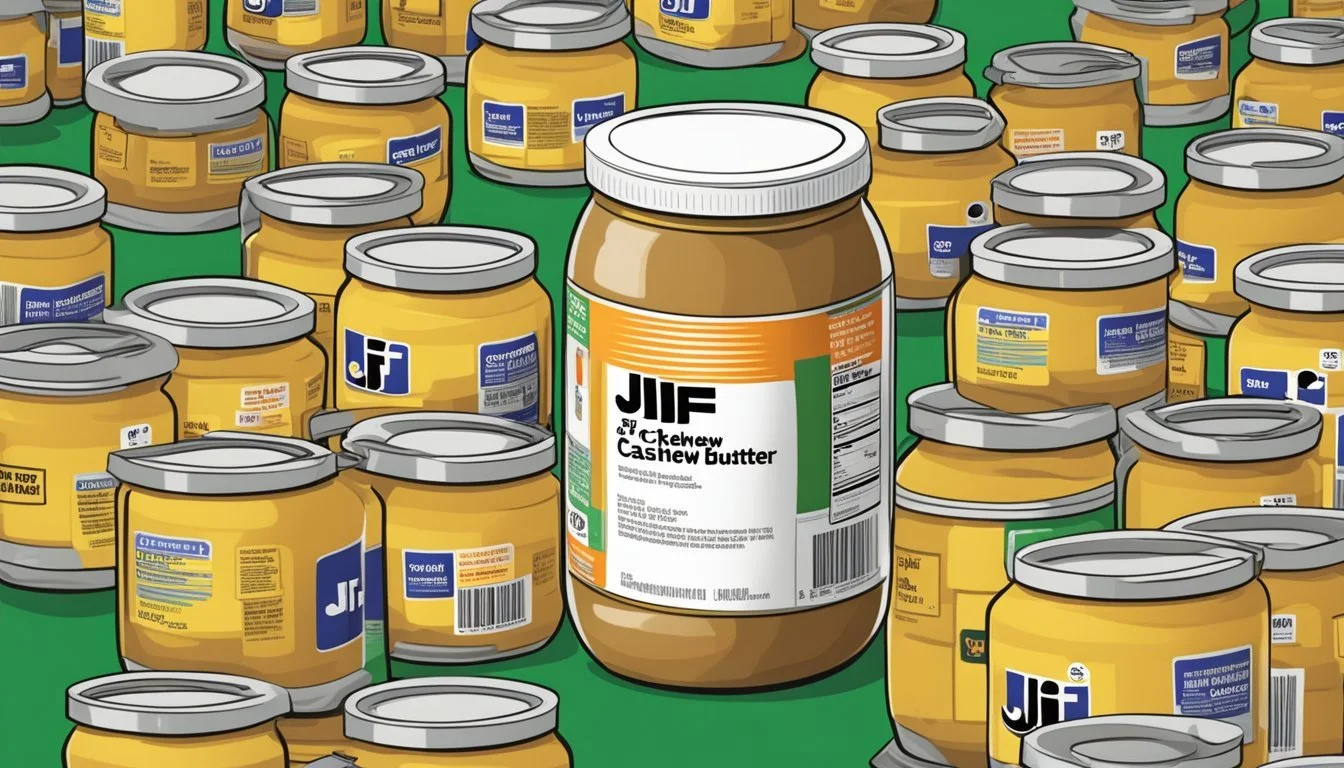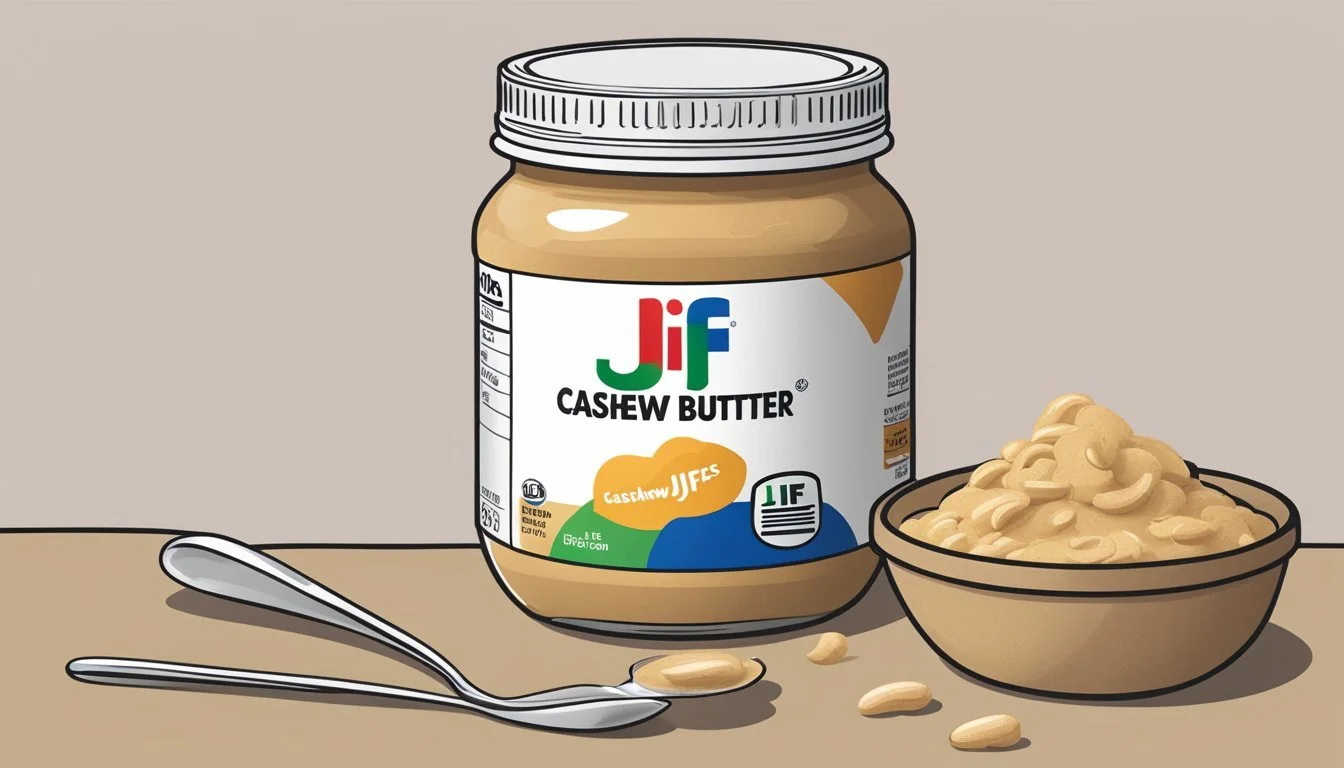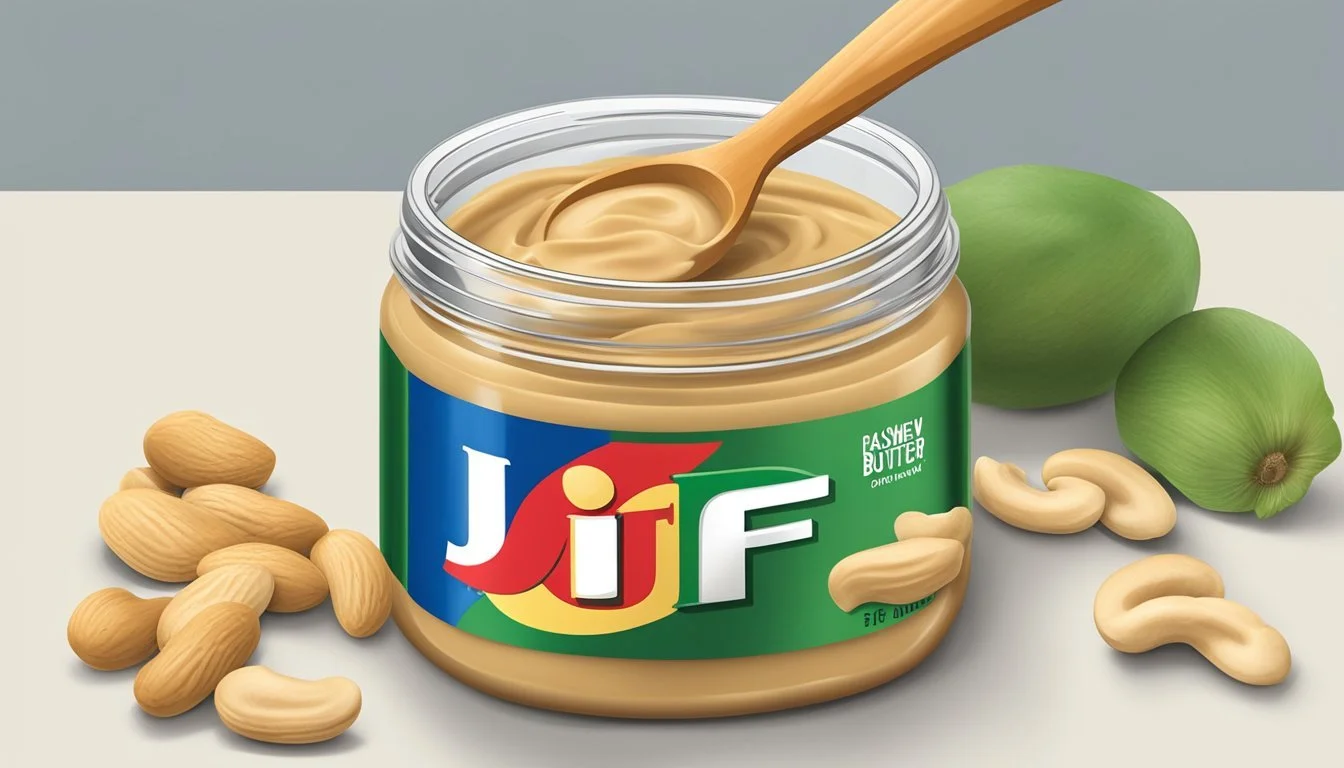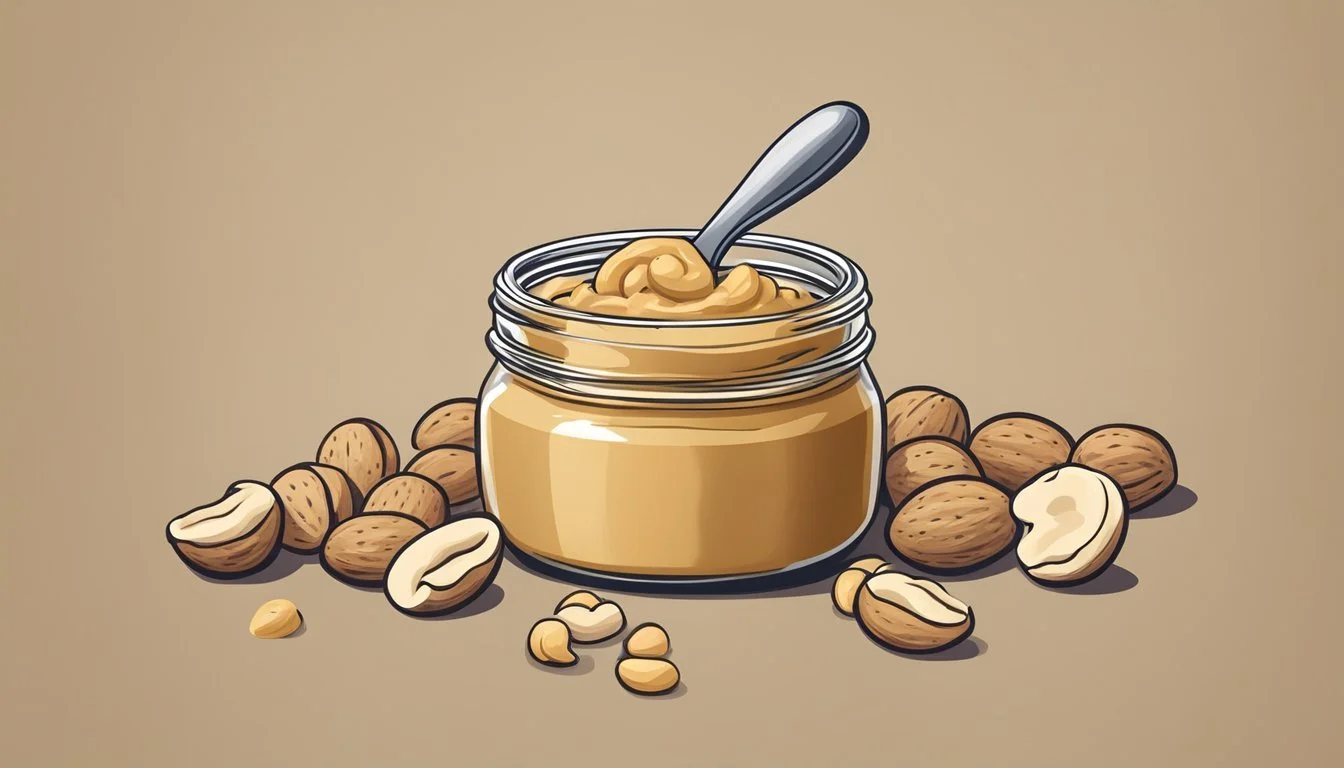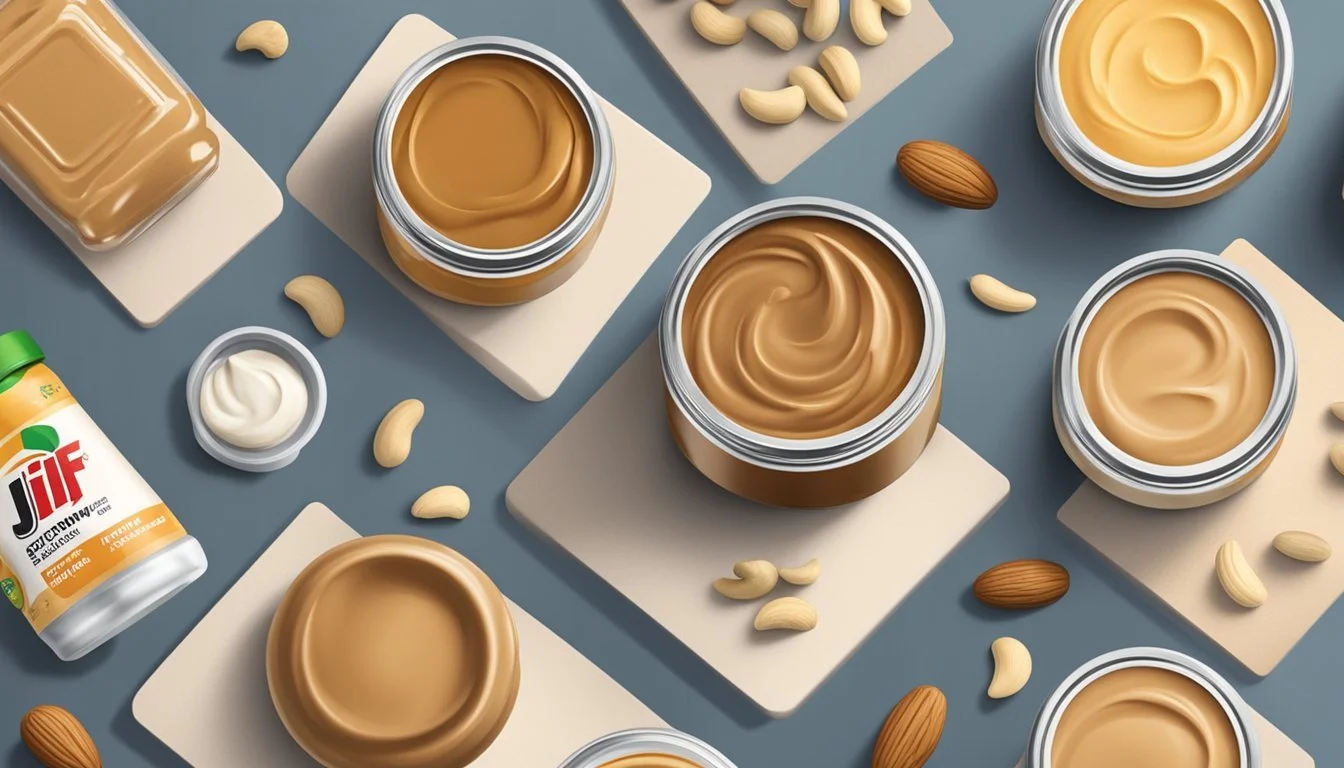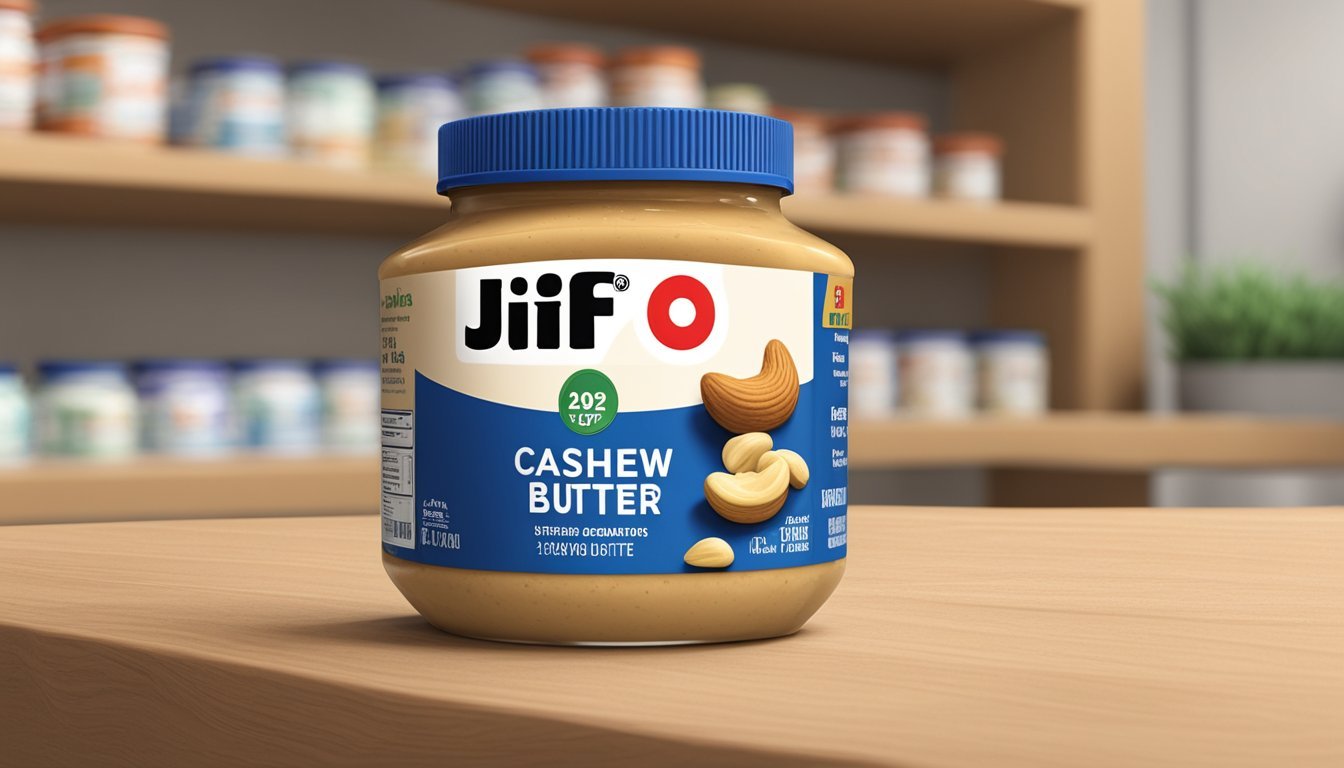How Much Jif Cashew Butter Per Day Is Too Much?
Understanding Healthy Limits
Cashew butter has become a popular alternative to traditional peanut butter, offering a creamy texture and a distinctive, mild flavor. Jif, a well-known brand in the nut butter market, has introduced its own version of cashew butter, which is appreciated for its taste and smooth consistency. When considering its place in a healthy diet, the nutritional profile of cashew butter is worth noting. It is rich in healthy fats, protein, and essential vitamins and minerals, making it a nutritious spread for individuals looking for variety in their nut butter choices.
While Jif cashew butter can be a healthful addition, it's important to be mindful of portion sizes. Like all nut butters, cashew butter is calorie-dense, meaning that small amounts provide a significant number of calories. This characteristic highlights the necessity of understanding appropriate serving sizes to prevent excessive calorie consumption. The balance between enjoying the creamy delight of cashew butter and maintaining nutritional moderation is essential, especially for those monitoring their caloric intake for weight management or other health-related goals.
In terms of recommended daily intake, it generally aligns with the nutritional advice for most nut butters. Although Jif does not specifically provide guidance on daily consumption limits for their cashew butter, the general nutritional wisdom suggests that sticking to the standard serving size—a tablespoon or two—can be a good rule of thumb to enjoy the benefits without overindulgence. Consumers should also be aware of individual dietary needs and consult with healthcare professionals for personalized recommendations.
Nutritional Profile of Jif Cashew Butter
Jif Cashew Butter provides a nutrient-rich option for individuals seeking a blend of taste and nutrition. The caloric value per two tablespoons (33g) serving is 200 calories. The fat content is notable, with 74% of calories coming from fat. This includes both unsaturated and saturated fat, with 3.5g of the latter.
In terms of protein, each serving yields a modest 7%, which contributes to muscle maintenance and repair. The butter also contains fiber, albeit in smaller quantities, which is essential for digestive health.
The vitamin and mineral content reflects the nutritional benefits of cashews themselves, offering a source of several micronutrients. Notably, a serving provides about 10% of the daily value of iron, which is crucial for transporting oxygen in the blood. Other minerals present include potassium, magnesium, and calcium, each playing a role in various bodily functions such as nerve transmission, muscle function, and bone health.
Nutrient Amount per Serving % Daily Value* Calories 200 -- Total Fat -- 74% Saturated Fat 3.5g -- Protein -- 7% Fiber -- -- Iron -- 10% Potassium -- -- Magnesium -- -- Calcium -- --
*% Daily Values are based on a 2,000 calorie diet.
Keep in mind that while Jif Cashew Butter is a source of beneficial nutrients, it is also calorie-dense and should be consumed in moderation as part of a balanced diet. The product's nutritional profile may vary slightly, so it is wise to check the latest packaging for the most accurate information.
Recommended Daily Intake
When it comes to consuming Jif cashew butter, moderation is key. An individual should aim for one to two tablespoons as a serving size, bearing in mind that each tablespoon contains about 94 calories and 8 grams of fat.
Nutritional Considerations
Calories: Approximately 94 calories per tablespoon. Monitoring calorie intake is important to maintain a balanced diet.
Fat Content: Contains 8 grams of fat per tablespoon, primarily consisting of monounsaturated and polyunsaturated fats which are beneficial in moderate amounts.
Micronutrients: Provides essential vitamins and minerals, including iron, potassium, magnesium, vitamin K, and calcium.
Due to its calorie-dense nature, individuals should factor the consumption of cashew butter into their daily caloric needs. Those with specific dietary restrictions regarding fat intake should also consider the fat content in their daily diet.
Limiting Factors
While Jif cashew butter can be a nutritious addition to one's diet, it is advisable not to exceed the recommended serving size. Overindulgence may lead to excess calorie consumption which, over time, could contribute to weight gain.
In summary, one should enjoy cashew butter in moderation, ensuring it complements a varied and balanced diet. Paying attention to serving sizes is crucial to avoid exceeding daily nutritional requirements for fats, calories, and micronutrients.
Health Benefits of Jif Cashew Butter
Jif Cashew Butter is a nutritional spread providing benefits for heart health, weight management, and muscle and bone strength. Its composition includes healthy fats, vitamins, and minerals that when consumed moderately, can support overall wellness.
Heart Health
Jif Cashew Butter contains unsaturated fats, which are known to be beneficial for heart health. These fats can help maintain normal cholesterol levels. It also offers a small amount of fiber, contributing to cardiovascular health by aiding in the reduction of bad cholesterol (LDL).
Weight Management
The spread can play a role in weight management due to its protein content and dietary fiber. Protein creates a sense of fullness, which can reduce overall calorie intake, while fiber aids in digestion and can help prevent overeating.
Muscle and Bone Strength
For maintenance of muscle and bone strength, Jif Cashew Butter provides minerals like magnesium and phosphorous. Magnesium plays a critical role in muscle function, and phosphorous contributes to bone health. A serving of cashew butter offers about:
16% of the Recommended Dietary Allowance (RDA) for Magnesium
15% RDA for Phosphorous
Pairing these nutrients with regular physical activity enhances their effectiveness in supporting muscle and bone integrity.
Potential Risks and Considerations
When considering the consumption of Jif cashew butter, two primary areas of concern are allergy risks and the intake of saturated fats and calories, which may impact health if not managed properly.
Allergy Information
Cashew nuts, like all tree nuts, can cause severe allergic reactions in individuals with nut allergies. Symptoms range from mild to potentially life-threatening. It is crucial for consumers with nut allergies to avoid Jif cashew butter and products that may contain traces of cashew or other nuts.
Saturated Fats and Calories
Saturated fat content is a health consideration when consuming nut butters. Some nut butters, including certain cashew butter brands, contain added oils, which may increase the saturated fat content. Regular consumption of high amounts of saturated fat can be detrimental to heart health. The calorie density of nut butters, including Jif cashew butter, is also high, and excessive intake may contribute to weight gain if not accounted for within one's daily caloric needs. Monitoring portion sizes is essential to manage intake.
Comparing Cashew Butter to Other Nut Butters
Cashew butter is often compared to its counterparts, peanut and almond butter, in terms of taste, texture, and nutrition.
Cashew Butter vs. Peanut Butter
Texture:
Cashew Butter: It tends to be rich and creamy, with a less gritty texture.
Peanut Butter: Generally has a slightly grainier texture compared to cashew butter.
Taste:
Cashew Butter: Offers a milder, sweeter flavor profile.
Peanut Butter: It is known for its strong, distinct nutty taste that can sometimes overshadow other flavors in a dish.
Nutrition:
Cashew Butter: It typically contains a similar amount of protein to peanut butter but can have higher carbohydrates and less sugar, depending on the brand and if it's unsweetened.
Peanut Butter: It usually has a little more protein per serving and, if unsweetened, no added sugar.
Cashew Butter vs. Almond Butter
Texture:
Cashew Butter: Creamier and smoother in consistency.
Almond Butter: Often has a denser texture and can be a bit more coarse.
Taste:
Cashew Butter: Sweeter and less intensely nutty compared to almond butter.
Almond Butter: Has a robust, slightly bitter nut flavor that stands out in recipes.
Nutrition:
Cashew Butter: Provides a similar caloric value but often has more saturated fat compared to almond butter.
Almond Butter: Generally offers more vitamins and minerals, such as Vitamin E and magnesium, and might have slightly more fiber.
By comparing their characteristics, those interested in nutrition can make informed choices regarding which nut butter best fits their dietary preferences.
Incorporating Jif Cashew Butter into Your Diet
Introducing Jif Cashew Butter into your daily meals can be a delicious and nutritious choice. This versatile, spreadable addition to your pantry offers a creamy texture and rich flavor that can enhance various foods from breakfast to snacks to savory dishes.
Breakfast Options
For a satisfying start to the day, individuals can spread Jif Cashew Butter on whole-grain toast or add a spoonful to a bowl of oatmeal. Mixing the butter into smoothies or layering it with yogurt and fruit can provide a balanced breakfast with a boost of protein.
Toast: A spread of cashew butter on toast with a sprinkle of cinnamon.
Oatmeal: Stir into hot oatmeal for a creamy twist.
Smoothies: Blend with bananas and almond milk for added richness.
Yogurt Parfait: Layer with Greek yogurt and berries for a hearty meal.
Healthy Snacks
As a snack, cashew butter is both satisfying and healthful. It pairs well with apple slices, celery, or used as a dip for whole-grain crackers. The smooth texture of Jif Cashew Butter makes it an easy-to-eat, energizing option between meals.
Fruit Dip: Apple or banana slices dipped in cashew butter.
Crackers: Spread on crackers for a quick, energizing snack.
Celery Sticks: Fill celery with cashew butter for a satisfying crunch.
Baking and Cooking
Jif Cashew Butter can serve as a key ingredient in baked goods or as a component of savory sauces. Whether one is baking muffins or crafting a cashew-based stir-fry sauce, its incorporation can enrich the flavor profile of both sweet and savory recipes.
Muffins: Add to batter for extra moistness.
Cookies: Use as a substitute for other butters in cookie recipes.
Sauces: Whisk into stir-fry sauces for a creamy texture.
By following these suggestions, individuals can enjoy Jif Cashew Butter's versatility in meals throughout the day, reaping both its taste and nutritional benefits.
Proper Storage and Shelf Life
For maximum freshness and to maintain the quality of Jif cashew butter, proper storage methods should be utilized. The amount of time it can be safely consumed after purchase is largely impacted by how it is stored.
Storing Jif Cashew Butter
Jif cashew butter should be kept in an airtight container to prevent exposure to air, which can lead to spoilage. It's advisable to:
Store unopened containers in a cool, dry place away from direct sunlight.
Once opened, refrigerate the container to extend its shelf life.
Useful Tip: To prevent contamination, use clean utensils when scooping out the butter.
Shelf Life Considerations
The shelf life of Jif cashew butter is affected by storage conditions:
Unopened: Typically lasts about 6-12 months when stored according to manufacturer recommendations.
Opened and Refrigerated: Can last for approximately 3-5 months.
Note: Always check the product's expiration date and inspect the cashew butter before consuming. Signs of spoilage include changes in color, texture, or odor.
Consumer Information
This section provides a detailed examination of Jif cashew butter, focusing on label and ingredient analysis, the diversity and availability of brands in the market, and price points that reflect its accessibility to consumers.
Label and Ingredient Analysis
Jif Creamy Cashew Butter is presented as a nutritious option, but it's imperative to scrutinize the label for health-conscious consumers. Each serving is delineated as 200 calories, with content that includes fats, protein, and essential vitamins and minerals. One should be aware of the saturated fat content, as excessive intake can have detrimental effects on heart health. Despite being a nutrient-dense snack, consumers should consume it in moderation, adhering to the dietary guidelines suggested by health organizations.
Brands and Market Variety
The market presents a range of cashew butter brands, each offering unique flavor profiles and nutritional content. Jif stands as a popular choice, although alternatives like Masie Jane's Creamy Cashew Butter showcase market variety. Consumers are encouraged to explore different brands, considering both taste and health benefits, as some provide options without added oils or salt, which is a significant factor for those monitoring their sodium intake.
Price and Accessibility
Cashew butter can vary in price, generally influenced by factors such as brand reputation, ingredient quality, and production methods. For example:
Masie Jane's Creamy Cashew Butter: Approximately $0.94 per ounce
Jif Creamy Cashew Butter: Price varies by retailer
Price fluctuation also depends on the point of purchase, whether it be in-store or online. Accessibility is equally essential, with mainstream brands like Jif being widely available in most supermarkets, whereas specialty brands may be found in health food stores or online platforms. Consumers should consider both price and availability when selecting the most suitable cashew butter for their needs.
DIY Cashew Butter
Making your own cashew butter at home is simple and allows for a variety of flavor customizations. It requires minimal ingredients and equipment, and one can choose between a roasted or raw flavor profile.
Homemade Cashew Butter Recipe
To start, one will need raw cashews. Preheat the oven to 350°F for roasted cashew butter, which typically brings out a nutty flavor. Spread the cashews on a baking sheet and roast for about 10-15 minutes until they're lightly browned and fragrant. For a raw version, skip the roasting step.
After roasting, or if using raw, let the cashews cool slightly before processing. One will need a blender or food processor to create a smooth consistency. Place the cashews in and blend on high, stopping to scrape down the sides periodically. Continue until the mixture becomes creamy, which may take several minutes. The final texture should be mostly smooth, with perhaps a touch of graininess.
Customization Tips
Flavors: One can customize their cashew butter by adding different spices or sweeteners. Options include cinnamon, vanilla extract, honey, or maple syrup. Ensure these additions are blended thoroughly for an even flavor.
Salt: A pinch of salt can help enhance the nutty taste of the cashews.
Using quality ingredients and adjusting to taste are key for a personalized batch of cashew butter. One can experiment with these variables to perfect their homemade spread.
Conclusion
Jif cashew butter can be an enjoyable and nutritious addition to a balanced diet, bringing with it a range of nutritional benefits such as proteins, healthy fats, and various vitamins and minerals. While there's no one-size-fits-all answer to the amount that can be consumed daily, moderation is key.
Individuals should consider their overall dietary needs, calorie intake, and activity level when including Jif cashew butter in their diet. A typical serving size is two tablespoons, which aligns well with dietary recommendations for nut butters.
Nutritional profile per serving:
Calories: Approximately 200
Protein: 7 grams
Healthy fats: Predominantly monounsaturated and polyunsaturated
Incorporating Jif cashew butter into one's diet should not compromise other aspects of nutritional variety or overall calorie limits. It is worth noting that, despite its health benefits, excessive consumption may lead to weight gain due to its high calorie and fat content.
Consumers are advised to read nutritional labels carefully and to integrate this food into a diverse diet that includes a wide range of fruits, vegetables, lean proteins, and whole grains.balance is essential for maintaining good health, and this principle applies to the consumption of all nut butters, including Jif cashew butter.

